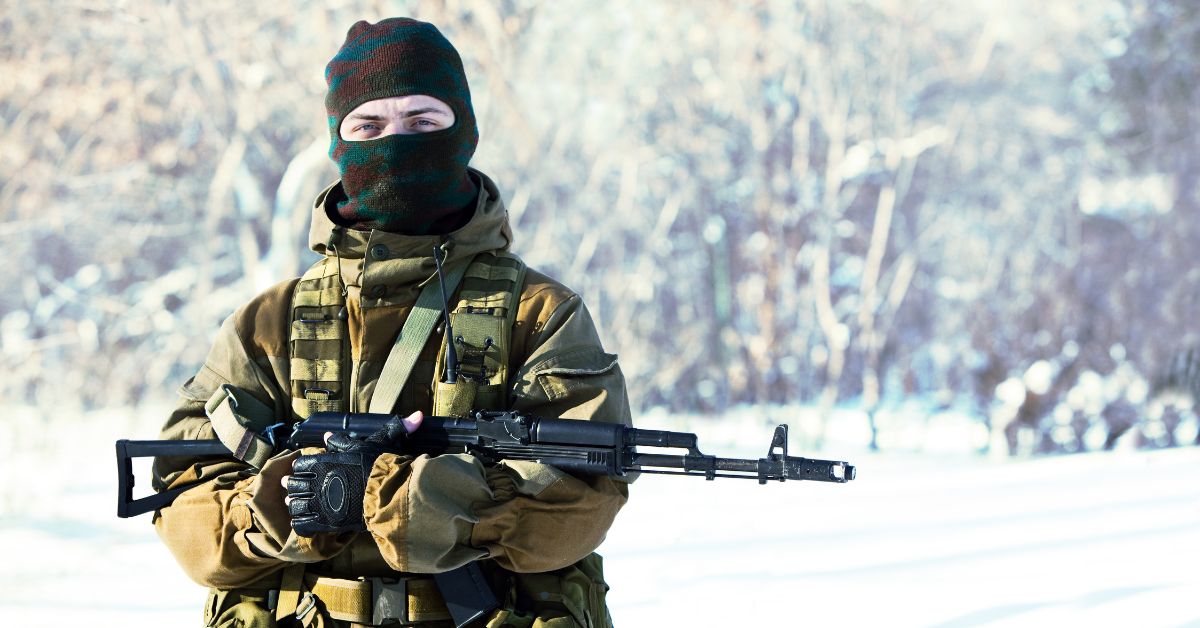Russian Soldiers Using Energy Drinks to Stay Awake: A Growing Trend in Modern Warfare
In recent years, it has been reported that russian soldiers using enrgy drinks to stay awake has become a concerning yet increasingly common practice among military personnel. As the intensity of modern warfare increases, soldiers are facing longer hours, high-stress situations, and the physical toll of combat. In response to these challenges, energy drinks are becoming a go-to solution to help soldiers remain alert and functional during extended operations. However, this practice raises questions about the long-term effects on health, the ethics of reliance on stimulants, and the implications for military readiness.
In this article, we will explore why russian soldiers using enrgy drinks to stay awake has gained traction, how these drinks impact soldiers, and the potential risks associated with this growing trend.
The Growing Use of Energy Drinks in Military Contexts
The use of energy drinks to stay awake is not unique to the Russian military. Across the globe, armed forces have found that stimulants can help soldiers endure long missions, battle fatigue, and stay vigilant. However, the sheer prevalence of russian soldiers using enrgy drinks to stay awake has become particularly notable due to the country’s ongoing military engagements, such as the conflict in Ukraine and other tense military operations.
Energy drinks contain caffeine, sugar, and other stimulants designed to temporarily increase alertness and reduce fatigue. For soldiers in combat zones, these drinks serve as a quick and easily accessible means to maintain energy levels during periods of intense activity. The long hours and physically demanding nature of military operations leave little room for rest, making energy drinks a valuable tool in maintaining operational effectiveness.
Why Are Russian Soldiers Using Energy Drinks to Stay Awake?
There are several key factors driving the increasing use of energy drinks among Russian soldiers. These factors highlight the pressures and challenges faced by modern militaries.
1. Extended Operational Hours and Combat Fatigue
One of the primary reasons russian soldiers using enrgy drinks to stay awake is becoming widespread is the nature of modern warfare. In today’s military operations, soldiers are often required to work long hours, sometimes without adequate rest, to maintain operational momentum. Whether it’s on patrol, guarding strategic locations, or engaging in combat, soldiers must remain alert and prepared at all times. Energy drinks help them to combat fatigue and stay focused when the physical and mental demands are overwhelming.
2. Sleep Deprivation and Stress
The toll that combat and high-pressure environments take on soldiers is immense. Sleep deprivation is a significant issue for soldiers operating in conflict zones, where rest is scarce and threats are constant. Russian soldiers using energy drinks to stay awake is a direct response to the need for heightened awareness in the absence of sufficient sleep. The stress of combat, the constant need for vigilance, and the pressure to perform at all costs contribute to the growing reliance on energy drinks.
3. The Availability and Accessibility of Energy Drinks
Energy drinks are readily available in most conflict zones, including in military supply chains. For Russian soldiers using energy drinks to stay awake, these beverages are both affordable and easy to access, making them a convenient solution for staying alert during extended operations. Unlike other performance-enhancing substances that may require more complicated logistics or approval, energy drinks are a simple and effective way for soldiers to combat exhaustion.
4. Cultural Acceptance and Habit
The use of stimulants, including energy drinks, has become deeply ingrained in certain cultures, including in Russia. Russian soldiers using energy drinks to stay awake may simply be following the practice that has become normalized in the military environment. Many soldiers are accustomed to using these drinks as part of their daily routines, whether during training or in the midst of active conflict. This cultural acceptance of energy drinks as a tool to enhance performance makes it more likely that soldiers will continue to rely on them during their operations.
The Impact of Energy Drinks on Russian Soldiers
While energy drinks can offer short-term benefits, the long-term effects of their consumption on Russian soldiers using energy drinks to stay awake are a cause for concern. It is important to consider both the immediate and the lasting impacts of these drinks on soldiers’ health and well-being.
1. Short-Term Benefits: Alertness and Performance
In the short term, energy drinks are effective in providing a quick boost of energy. The caffeine and sugar content in these drinks stimulate the central nervous system, increasing alertness, focus, and endurance. For soldiers in the field, this can be essential for staying vigilant during long missions, patrolling for hours, or engaging in high-stress combat situations. Russian soldiers using energy drinks to stay awake report feeling more alert and able to function when otherwise they would have been physically and mentally exhausted.
2. Long-Term Health Risks: Dependence and Burnout
Despite the short-term benefits, the long-term use of energy drinks can have serious consequences. The reliance on these beverages to stay awake can lead to physical and psychological dependence on the caffeine and stimulants they contain. Prolonged use can result in:
- Caffeine addiction: Chronic consumption of energy drinks can lead to caffeine dependence, causing withdrawal symptoms such as headaches, irritability, and fatigue when the stimulant is not available.
- Heart Issues: The high caffeine content in energy drinks can strain the cardiovascular system, leading to an increased risk of heart palpitations, high blood pressure, and other heart-related conditions. These issues are particularly concerning for soldiers who are already under extreme physical and mental stress.
- Mental Health Impacts: The constant cycle of energy drink consumption can disrupt sleep patterns, contributing to insomnia and further exacerbating the mental toll of combat stress. This can lead to cognitive decline, anxiety, and other mental health disorders, which are common in soldiers who experience prolonged sleep deprivation.
3. Physical Exhaustion and Dehydration
Energy drinks can mask the symptoms of fatigue but do not address the underlying need for rest and recovery. Russian soldiers using energy drinks to stay awake may push their bodies beyond safe limits, leading to physical exhaustion. Additionally, energy drinks can have a diuretic effect, which increases the risk of dehydration—another issue that soldiers in combat zones already face.
The Ethics and Implications of Soldiers Using Stimulants
The growing trend of Russian soldiers using energy drinks to stay awake raises important ethical and strategic questions. While these drinks may help soldiers perform in the short term, there are concerns about the long-term effects on their health, the potential for misuse, and the overall integrity of the military force.
1. Militaries’ Responsibility for Soldier Health
The increasing reliance on energy drinks to maintain alertness reflects a larger issue within military structures: the lack of proper rest and recovery for soldiers. The ethical responsibility of a military is to protect the health and well-being of its personnel, which includes ensuring they receive adequate rest, nutrition, and psychological support during and after combat. If soldiers are pushed to rely on stimulants to perform their duties, it signals a potential breakdown in these critical support systems.
2. Reliance on Stimulants in Modern Warfare
The broader implications of russian soldiers using enrgy drinks to stay awake also suggest that modern warfare itself may be encouraging unhealthy reliance on stimulants. The pressure to perform continuously, without sufficient downtime, reflects a shift toward more grueling and relentless military operations. This trend may extend beyond energy drinks, potentially leading to greater acceptance of other performance-enhancing substances.
Conclusion: The Dangers of Over-Reliance on Energy Drinks in Combat
Russian soldiers using energy drinks to stay awake is a growing phenomenon that highlights the pressures of modern warfare and the physical demands placed on soldiers. While energy drinks may offer a quick solution to combat fatigue and increase short-term alertness, the long-term effects on health cannot be ignored. The reliance on stimulants raises significant concerns about the impact on soldiers’ physical and mental well-being, as well as the ethics of using these substances to maintain operational effectiveness.
For the health and future readiness of military personnel, it is crucial that armed forces, including Russia, consider alternative ways to support their soldiers, including providing adequate rest, psychological support, and better work-life balance in combat zones. Until then, the practice of russian soldiers using enrgy drinks to stay awake will likely continue, with potential consequences that could affect the well-being of those on the front lines.




